Serving Hope – One Meal At A Time
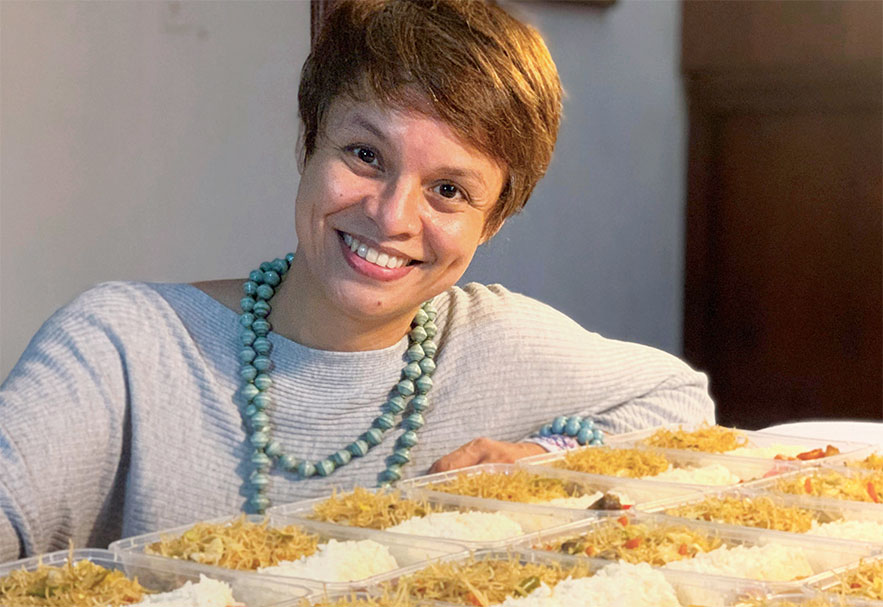
On January 30, the Philippines counted their first case of COVID-19. Separated from China by a narrow sea, it was only a matter of weeks before the virus had spread across this island nation of more than 106 million people.
By the second week in March, the booming metropolis of Manila looked like hundreds of other cities across the globe: businesses were closed, gatherings were canceled, and hospitals were full as healthcare workers on the front lines worked day and night to accommodate a rapidly growing number of patients.
Haggai leader Mae Young had just taken her work as a Corporate Education Consultant online when her close friend, Candy, had an idea. Candy was connected to the head of emergency medicine at a large hospital in Manila – and the doctor shared that his team was dangerously over capacity. Like healthcare workers worldwide, they were all working long hours, multiple shifts, and many had intentionally isolated from their friends and family because of their exposure to the virus.
Mae and Candy made a plan: instead of celebrating Candy’s birthday with a party, they would feed the emergency room staff.
Mae’s connections brought in donations from restaurants across the country, as well as multinational companies such as TGI Fridays, Chili’s, Panda Express, The Shell Foundation, Jollibee and McCormick. Using the Frontline Feeders website, Facebook, and Instagram, they were able to efficiently connect donors of all capacities to the right hospitals.
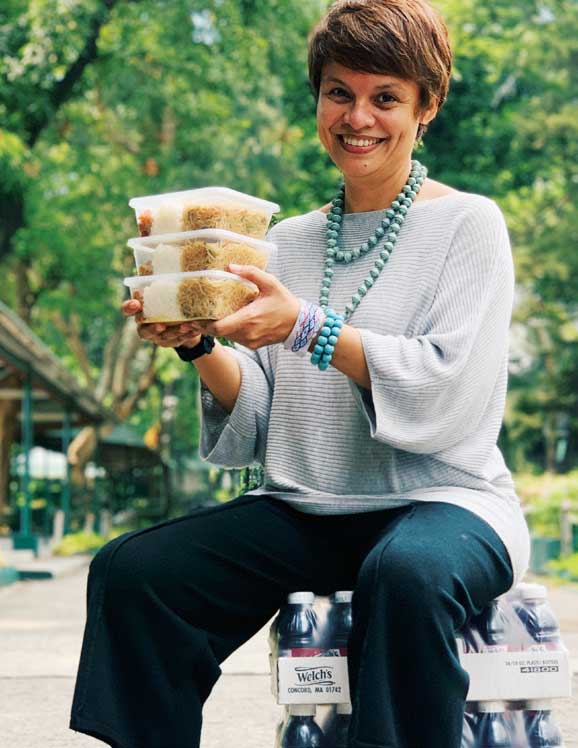 Recruiting the help of friends, they coordinated and delivered a meal for 50 medical team members on March 12. Within 24 hours, word of this celebration had spread to other departments and hospitals across Manila. Mae and Candy quickly saw that this wasn’t just a one-time act of generosity: this was an opportunity to share hope with a city in crisis.
Recruiting the help of friends, they coordinated and delivered a meal for 50 medical team members on March 12. Within 24 hours, word of this celebration had spread to other departments and hospitals across Manila. Mae and Candy quickly saw that this wasn’t just a one-time act of generosity: this was an opportunity to share hope with a city in crisis.
“In a matter of 6 hours we went from 2 to 17 volunteers made up of restaurant owners, physicians, an NGO leader, and marketplace leaders.”
The group of friends declared their mission – Honor, Respect, and Gratitude through Food. And, within 24 hours, they were connecting to hospitals across the city.
Mae’s experience in marketing and communications meant that she was perfectly equipped to be the group’s ambassador. She recruited investors and donors from across the country and leveraged her corporate relationships to support the newly named “Frontline Feeders” as they worked around strict lockdowns and food supply complications to feed thousands of essential workers.
To accommodate a traditional two-shift hospital schedule, the group served two meals each day to each hospital. The operation was vast, but their model was simple: each group member handled one or two hospitals, then an assigned coordinator ensured that meals were allocated properly and received in a timely and safe manner.
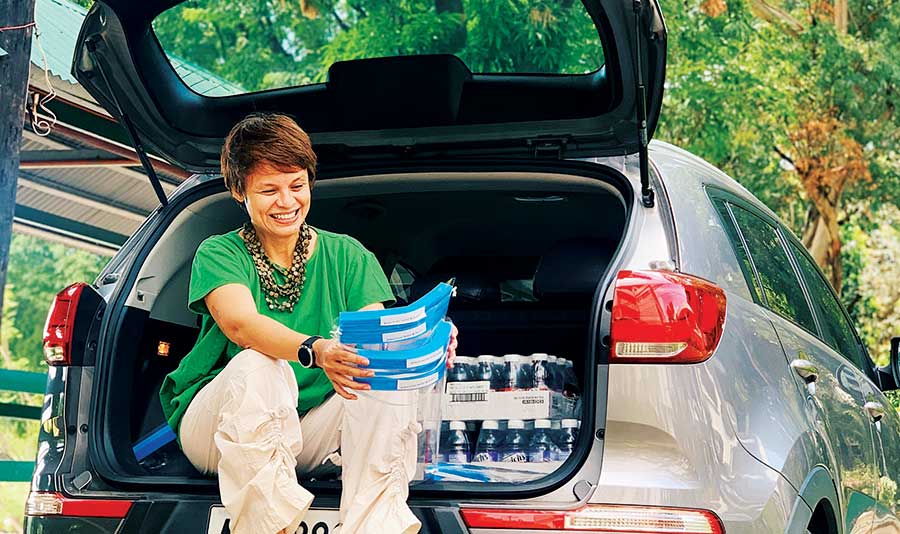
What started with a small group of friends organizing meals for one emergency room grew to serve 45 hospitals in 17 cities and 3 provinces. As of mid-May, they had already served 110,000 meals.
Mae’s connections brought in donations from restaurants across the country. Using online resources, they were able to efficiently connect donors of all capacities to the right hospitals.
Still, it was not the food, but the Gospel motivation behind it that made the greatest impact.
“Among the volunteers of Frontline Feeders, I am the only Christian. This work allowed me to share my beliefs with the group. I saw the difference in the way two women would say ‘thank you’ to the Lord when they announced that they had received donations. They were convinced moment by moment that yes, God moves people’s hearts.”
And for the workers on the front lines, this enormous effort went far beyond the meals served: it showed them that they were cared for by something, better yet someone, bigger than themselves.
“We were expecting that they would be happy to get meals, but the messages that we got went beyond that. They said, ‘your thoughtfulness has given us hope.’ It’s meant so much more to them than food. They felt that they are part of a community that cares for them. People that have never even met them were looking out for them . . . it’s a great metaphor for how God takes care of us, even though we can’t see Him.”
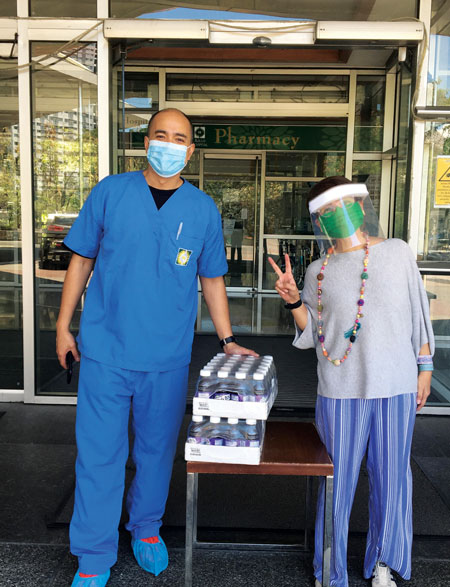 To understand how any of this amazing work was possible, it’s important to know what kind of person becomes a Haggai leader.
To understand how any of this amazing work was possible, it’s important to know what kind of person becomes a Haggai leader.
The Haggai model is based on strategically selecting men and women who have demonstrated formidable influence in their professional spheres, then equipping them to leverage their platforms for the Gospel.
When combined, strategic leadership and Gospel-fueled compassion have the capacity for exponential impact — even in a pandemic.
When Mae Young attended the Haggai Leader Experience (HLE) in May 2012, she was serving as a brand manager with a multinational construction company. Inspired by what she learned through the HLE, Mae went into business on her own as a Corporate Education Consultant.
Her new role allowed her to facilitate marketing, communications, and customer service trainings for some of the country’s most influential organizations and, in turn, share Christian principles in a professional context.
By Spring 2020, Mae’s client list had given her access to some of the biggest players in the Filipino food industry, and her training with Haggai perfectly poised her to serve boldly in a season of unprecedented disruption.
Serving Hope – One Meal At A Time

On January 30, the Philippines counted their first case of COVID-19. Separated from China by a narrow sea, it was only a matter of weeks before the virus had spread across this island nation of more than 106 million people.
By the second week in March, the booming metropolis of Manila looked like hundreds of other cities across the globe: businesses were closed, gatherings were canceled, and hospitals were full as healthcare workers on the front lines worked day and night to accommodate a rapidly growing number of patients.
Haggai leader Mae Young had just taken her work as a Corporate Education Consultant online when her close friend, Candy, had an idea. Candy was connected to the head of emergency medicine at a large hospital in Manila – and the doctor shared that his team was dangerously over capacity. Like healthcare workers worldwide, they were all working long hours, multiple shifts, and many had intentionally isolated from their friends and family because of their exposure to the virus.
Mae and Candy made a plan: instead of celebrating Candy’s birthday with a party, they would feed the emergency room staff.
Mae’s connections brought in donations from restaurants across the country, as well as multinational companies such as TGI Fridays, Chili’s, Panda Express, The Shell Foundation, Jollibee and McCormick. Using the Frontline Feeders website, Facebook, and Instagram, they were able to efficiently connect donors of all capacities to the right hospitals.
 Recruiting the help of friends, they coordinated and delivered a meal for 50 medical team members on March 12. Within 24 hours, word of this celebration had spread to other departments and hospitals across Manila. Mae and Candy quickly saw that this wasn’t just a one-time act of generosity: this was an opportunity to share hope with a city in crisis.
Recruiting the help of friends, they coordinated and delivered a meal for 50 medical team members on March 12. Within 24 hours, word of this celebration had spread to other departments and hospitals across Manila. Mae and Candy quickly saw that this wasn’t just a one-time act of generosity: this was an opportunity to share hope with a city in crisis.
“In a matter of 6 hours we went from 2 to 17 volunteers made up of restaurant owners, physicians, an NGO leader, and marketplace leaders.”
The group of friends declared their mission – Honor, Respect, and Gratitude through Food. And, within 24 hours, they were connecting to hospitals across the city.
Mae’s experience in marketing and communications meant that she was perfectly equipped to be the group’s ambassador. She recruited investors and donors from across the country and leveraged her corporate relationships to support the newly named “Frontline Feeders” as they worked around strict lockdowns and food supply complications to feed thousands of essential workers.
To accommodate a traditional two-shift hospital schedule, the group served two meals each day to each hospital. The operation was vast, but their model was simple: each group member handled one or two hospitals, then an assigned coordinator ensured that meals were allocated properly and received in a timely and safe manner.

What started with a small group of friends organizing meals for one emergency room grew to serve 45 hospitals in 17 cities and 3 provinces. As of mid-May, they had already served 110,000 meals.
Mae’s connections brought in donations from restaurants across the country. Using online resources, they were able to efficiently connect donors of all capacities to the right hospitals.
Still, it was not the food, but the Gospel motivation behind it that made the greatest impact.
“Among the volunteers of Frontline Feeders, I am the only Christian. This work allowed me to share my beliefs with the group. I saw the difference in the way two women would say ‘thank you’ to the Lord when they announced that they had received donations. They were convinced moment by moment that yes, God moves people’s hearts.”
And for the workers on the front lines, this enormous effort went far beyond the meals served: it showed them that they were cared for by something, better yet someone, bigger than themselves.
“We were expecting that they would be happy to get meals, but the messages that we got went beyond that. They said, ‘your thoughtfulness has given us hope.’ It’s meant so much more to them than food. They felt that they are part of a community that cares for them. People that have never even met them were looking out for them . . . it’s a great metaphor for how God takes care of us, even though we can’t see Him.”
 To understand how any of this amazing work was possible, it’s important to know what kind of person becomes a Haggai leader.
To understand how any of this amazing work was possible, it’s important to know what kind of person becomes a Haggai leader.
The Haggai model is based on strategically selecting men and women who have demonstrated formidable influence in their professional spheres, then equipping them to leverage their platforms for the Gospel.
When combined, strategic leadership and Gospel-fueled compassion have the capacity for exponential impact — even in a pandemic.
When Mae Young attended the Haggai Leader Experience (HLE) in May 2012, she was serving as a brand manager with a multinational construction company. Inspired by what she learned through the HLE, Mae went into business on her own as a Corporate Education Consultant.
Her new role allowed her to facilitate marketing, communications, and customer service trainings for some of the country’s most influential organizations and, in turn, share Christian principles in a professional context.
By Spring 2020, Mae’s client list had given her access to some of the biggest players in the Filipino food industry, and her training with Haggai perfectly poised her to serve boldly in a season of unprecedented disruption.
Serving Hope – One Meal At A Time

On January 30, the Philippines counted their first case of COVID-19. Separated from China by a narrow sea, it was only a matter of weeks before the virus had spread across this island nation of more than 106 million people.
By the second week in March, the booming metropolis of Manila looked like hundreds of other cities across the globe: businesses were closed, gatherings were canceled, and hospitals were full as healthcare workers on the front lines worked day and night to accommodate a rapidly growing number of patients.
Haggai leader Mae Young had just taken her work as a Corporate Education Consultant online when her close friend, Candy, had an idea. Candy was connected to the head of emergency medicine at a large hospital in Manila – and the doctor shared that his team was dangerously over capacity. Like healthcare workers worldwide, they were all working long hours, multiple shifts, and many had intentionally isolated from their friends and family because of their exposure to the virus.
Mae and Candy made a plan: instead of celebrating Candy’s birthday with a party, they would feed the emergency room staff.
Mae’s connections brought in donations from restaurants across the country, as well as multinational companies such as TGI Fridays, Chili’s, Panda Express, The Shell Foundation, Jollibee and McCormick. Using the Frontline Feeders website, Facebook, and Instagram, they were able to efficiently connect donors of all capacities to the right hospitals.
 Recruiting the help of friends, they coordinated and delivered a meal for 50 medical team members on March 12. Within 24 hours, word of this celebration had spread to other departments and hospitals across Manila. Mae and Candy quickly saw that this wasn’t just a one-time act of generosity: this was an opportunity to share hope with a city in crisis.
Recruiting the help of friends, they coordinated and delivered a meal for 50 medical team members on March 12. Within 24 hours, word of this celebration had spread to other departments and hospitals across Manila. Mae and Candy quickly saw that this wasn’t just a one-time act of generosity: this was an opportunity to share hope with a city in crisis.
“In a matter of 6 hours we went from 2 to 17 volunteers made up of restaurant owners, physicians, an NGO leader, and marketplace leaders.”
The group of friends declared their mission – Honor, Respect, and Gratitude through Food. And, within 24 hours, they were connecting to hospitals across the city.
Mae’s experience in marketing and communications meant that she was perfectly equipped to be the group’s ambassador. She recruited investors and donors from across the country and leveraged her corporate relationships to support the newly named “Frontline Feeders” as they worked around strict lockdowns and food supply complications to feed thousands of essential workers.
To accommodate a traditional two-shift hospital schedule, the group served two meals each day to each hospital. The operation was vast, but their model was simple: each group member handled one or two hospitals, then an assigned coordinator ensured that meals were allocated properly and received in a timely and safe manner.

What started with a small group of friends organizing meals for one emergency room grew to serve 45 hospitals in 17 cities and 3 provinces. As of mid-May, they had already served 110,000 meals.
Mae’s connections brought in donations from restaurants across the country. Using online resources, they were able to efficiently connect donors of all capacities to the right hospitals.
Still, it was not the food, but the Gospel motivation behind it that made the greatest impact.
“Among the volunteers of Frontline Feeders, I am the only Christian. This work allowed me to share my beliefs with the group. I saw the difference in the way two women would say ‘thank you’ to the Lord when they announced that they had received donations. They were convinced moment by moment that yes, God moves people’s hearts.”
And for the workers on the front lines, this enormous effort went far beyond the meals served: it showed them that they were cared for by something, better yet someone, bigger than themselves.
“We were expecting that they would be happy to get meals, but the messages that we got went beyond that. They said, ‘your thoughtfulness has given us hope.’ It’s meant so much more to them than food. They felt that they are part of a community that cares for them. People that have never even met them were looking out for them . . . it’s a great metaphor for how God takes care of us, even though we can’t see Him.”
 To understand how any of this amazing work was possible, it’s important to know what kind of person becomes a Haggai leader.
To understand how any of this amazing work was possible, it’s important to know what kind of person becomes a Haggai leader.
The Haggai model is based on strategically selecting men and women who have demonstrated formidable influence in their professional spheres, then equipping them to leverage their platforms for the Gospel.
When combined, strategic leadership and Gospel-fueled compassion have the capacity for exponential impact — even in a pandemic.
When Mae Young attended the Haggai Leader Experience (HLE) in May 2012, she was serving as a brand manager with a multinational construction company. Inspired by what she learned through the HLE, Mae went into business on her own as a Corporate Education Consultant.
Her new role allowed her to facilitate marketing, communications, and customer service trainings for some of the country’s most influential organizations and, in turn, share Christian principles in a professional context.
By Spring 2020, Mae’s client list had given her access to some of the biggest players in the Filipino food industry, and her training with Haggai perfectly poised her to serve boldly in a season of unprecedented disruption.
Comments
Comments
-
What a beautiful and inspirational story. Bless Mae. Praise God for the ongoing impact from other HI graduates like Mae who are finding creative ways to “be there and show we care” in Jesus Name.
-
Thank you for this wonderful report. It was reviving indeed to hear that God has used Mae Young in this great way. I wish God can raise us to do as Mae has done in her community. May God help me to support Mae with prayers and words of encouragement.
I have an honor to remain
Yours faithfully


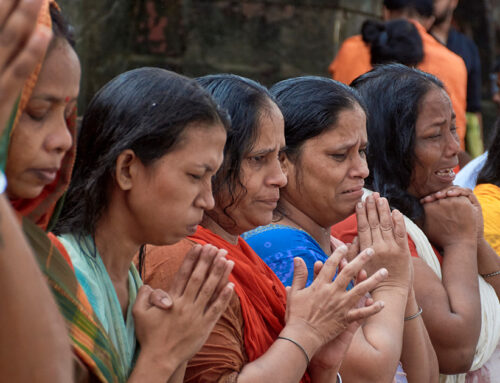
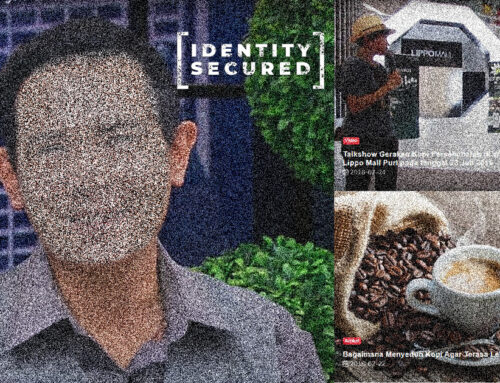
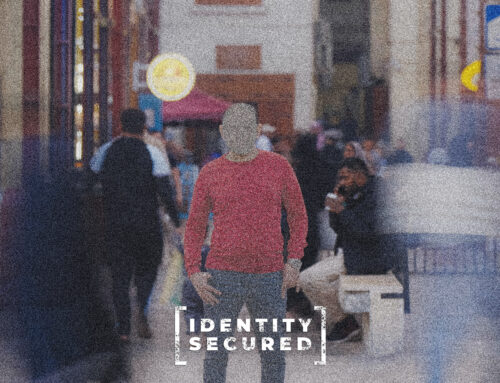
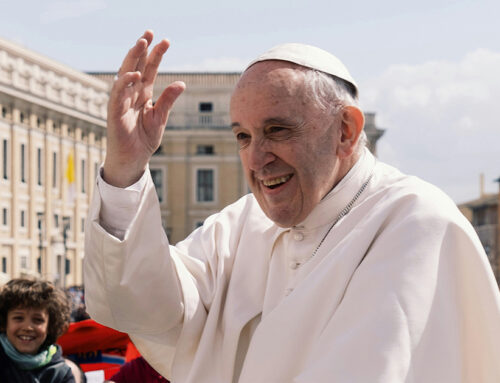
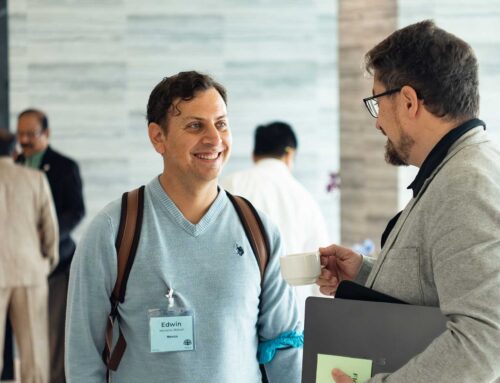
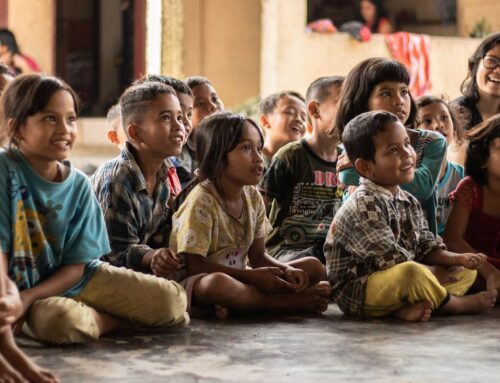
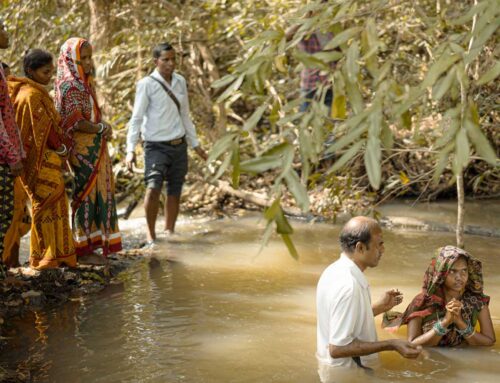







What a beautiful and inspirational story. Bless Mae. Praise God for the ongoing impact from other HI graduates like Mae who are finding creative ways to “be there and show we care” in Jesus Name.
Thank you for this wonderful report. It was reviving indeed to hear that God has used Mae Young in this great way. I wish God can raise us to do as Mae has done in her community. May God help me to support Mae with prayers and words of encouragement.
I have an honor to remain
Yours faithfully